
Goal
Industrial automation is undergoing rapid development due to digitalization and technological improvements. As a student of the Masters degree programme in Intelligent Systems you will gain knowledge of how to model and simulate industrial processes, you will be able to identify opportunities for industrial decision-making and learn how to implement intelligent solutions. You will also learn how to apply machine learning methods to solve industrial problems by using classification, regression, detection, and optimization. As a student you will understand the importance of thorough testing and evaluation of models and of high-quality data to succeed with the data-driven decision-making process. You will also develop an understanding of the ethical, sustainability and security challenges of intelligent industrial automation.
Structure of studies
The Master’s degree programme in Intelligent systems (60 ECTS) consists of degree specific professional studies (30 ECTS) and a Master’s thesis (30 ECTS).
The studies are primarily designed for students who are working. Tuition in the Master’s degree programme is organized so that studying can be combined with full-time work during a period of two years. During these two years, the studies are scheduled for two days a month from September to June. The studies consist of virtual parts and intensive course days mainly at Campus Vaasa. The studies of the programme involve not only theoretical lectures but also practical ways of learning, laboratory assignments and hands-on exercises in innovative learning environments.
The learning process is characterized by a strong integration of real working life problems and development projects. The thesis work is realized as a research and development project related to working life.

Study Content
Novia UAS offers a renewed curriculum from 2024 for the Master’s programme in Intelligent Systems, with a distinct profile in machine learning and artificial intelligence for industrial applications. The curricula include the practical application of machine learning methods for intelligent industrial automation. Both model-based and data-based methods are covered. Specific applications may include automatic quality control, data-driven fault detection, techniques for predictive and forecasting purposes and the study of generative models.
The degree program is linked to the Intelligent Systems Institute at Novia, which focuses on making applied intelligent systems knowledge and recourses readily available for companies. More information about the Intelligent Systems Institute can be found here.
Qualification
A Master’s degree in Intelligent Systems corresponds to the level EQF 7 in the European Qualifications Framework for Higher Education.
Under the Finnish legislation, a person who has taken the Master’s degree is qualified for posts or positions for which the qualification requirement is a second-cycle higher education degree.
In some cases, the qualification requirement also includes the completion of studies in certain specified fields of study. The degree falls under the Article 11 of the Directive 2005/36/EC of the European Parliament and of the Council on the recognition of professional qualifications.
Master of Engineering, Intelligent Systems
- Field of study: Technology and Seafaring
- Extent: 2 years 60 Credits
- Form: Master's Degree - Part-time studies
- Location: Vaasa
- Application period: 7–21.1.2026
- Information: part-time studies
Previous Knowledge
You can apply for Master of Engineering, Intelligent Systems if you have completed
- Bachelor's degree and/or master's degree
- Minimum 24 months of work in a related field after completion of Bachelor's degree
Eligibility criteria
Eligibility to apply to a UAS Master’s degree programme is conferred by an appropriate UAS Bachelor’s degree or another appropriate higher education degree, and at least two years (24 months) of subsequent work experience in a relevant field. An appropriate Bachelor's degree for this programme can be a Bachelor’s or Master’s degree in the field of Technology, e.g. Electrical or Automation Technology, Computer or Data Science, Information Technology, Mechanical Engineering, Energy Technology or any other related field within Technology.
News and Events

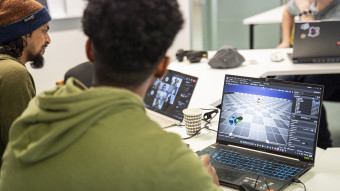

Scholarships and Tuition Fees
The studies are free for EU/EEA citizens. Tuition fee for non-EU/EEA students is set to 12 000 euro for the academic year 2025-2026.
Tuition fee-paying (non EU/EEA) students can apply for a scholarship. Read more about tuition fees and scholarships on the Admissions Services pages.

We're on social media. Follow us to keep up to date with news and what is happening in the degree programme.

Degree Project
The Master’s thesis comprises of 30 ECTS. In the Master’s thesis work you will plan and implement a development project in and/or for real working life, typically for your employee organization, applying case specific research and/or development approaches. In the Master’s thesis you complete research and contribute to knowledge and understanding in the field of intelligent systems.
Alternatives for the thesis are for example contributing to research work at the university community, development projects for the laboratory research equipment or studies regarding solving intelligent automation tasks with the industry or working life.
Continuing Education Opportunities
With a master´s degree, students are able to continue to university post-graduate (licentiate/doctoral) studies.
However, universities may at their own discretion have specific admission requirements for post-graduate studies that must be met in addition to a completed master’s degree.
Career Opportunities
The degree programme in Intelligent Systems provides the opportunity for a broad, interdisciplinary career.
After graduation with a special emphasis on machine learning methods and intelligent system understanding, you will be qualified to work in various expert, development, and management positions in an international industrial environment.
The education also offers an excellent basis for a career in research or product development.
Internationalisation
The network of international partner universities of Novia UAS offers a wide range of opportunities for internationalisation.
Language of Instruction
The language of instruction is English.
Collaboration With Other Actors
The focus, study contents, and implementation of the programme are planned together with the working life interest groups. Close contact and co-operation with working life also continue in programme implementation and continuous development.
Continuing Education Opportunities
With a master´s degree, students are able to continue to university post-graduate (licentiate/doctoral) studies. However, universities may at their own discretion have specific admission requirements for post-graduate studies that must be met in addition to a completed master’s degree.
Frequently Asked Questions
How do I apply?
Apply online at www.studyinfo.fi
Read more about the application process.
Webinar for Applicants to Master's Degree Programmes
Student Interview
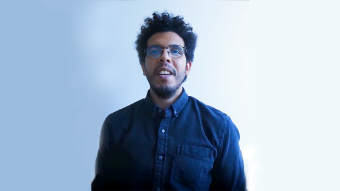
Career Opportunities
The degree programme in Intelligent Systems provides the opportunity for a broad, interdisciplinary career. After graduation with a special emphasis on machine learning methods and intelligent system understanding, you will be qualified to work in various expert, development, and management positions in an international industrial environment in automation and control. The education also offers an excellent basis for a career in research or product development.

Apply to Become an Master of Engineering!
Apply for a Mater Degree in Intelligent Systems at www.studyinfo.fi.
Related News
Read more related news


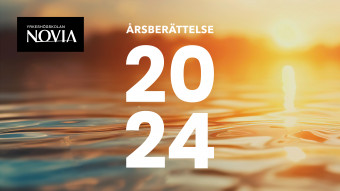
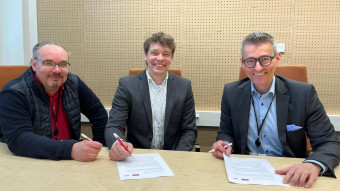



Meet Us
Novia University of Applied Sciences participates in several different student fairs and events. Our own students who are trained PR tutors visit secondary education schools across Finland. If you want to book a visit to your school or high school please contact Julia Mård, julia.mard@novia.fi and we will help you!
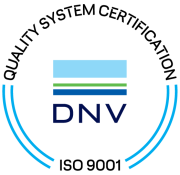
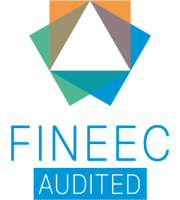
Novia UAS quality management is certified according to the ISO 9001 quality standard. This means that every year our entire business is audited by DNV. This is to ensure the best quality and constant development of Novia UAS.